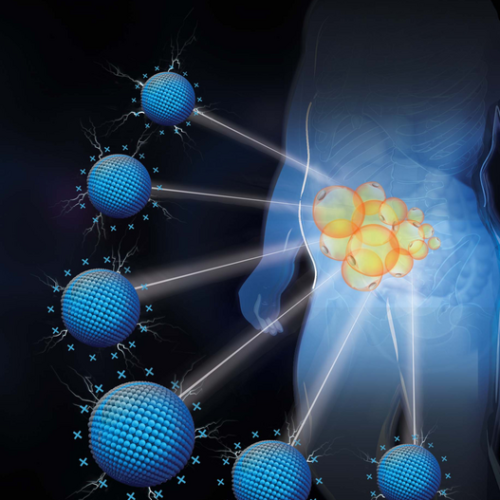By Dr. Priyom Bose, Ph.D. Jun 11 2023 Reviewed by Benedette Cuffari, M.Sc. Different types of nanomaterials have been used in neuroscience, including two-dimensional (2D) nanomaterials widely known for their unique structures and physicochemical properties. In a recent Journal of Nanobiotechnology review, scientists discuss the applications of 2D nanomaterials in neuroscience. Types of 2D nanomaterials...
Tag: <span>Nanomaterials</span>
Developing Next-Generation Nanomaterials for Medical Applications
Sponsored Content by Pittcon Apr 27 2023 Reviewed by Danielle Ellis, B.Sc. Insights from industry Dr. Chad Mirkin Director of the International Institute for NanotechnologyProfessor at Northwestern University In this interview conducted at Pittcon 2023 in Philadelphia, Pennsylvania, we spoke to Dr. Chad Mirkin, Director of the International Institute for Nanotechnology, about his work within...
Positively charged nanomaterials treat obesity anywhere you want
COLUMBIA UNIVERSITY SCHOOL OF ENGINEERING AND APPLIED SCIENCE IMAGE: ILLUSTRATION OF DEPOT-SPECIFIC TARGETING OF FAT BY CATIONIC NANOMATERIALS CREDIT: NICOLETTA BAROLINI/COLUMBIA UNIVERSITY New York, NY—December 1, 2022—Researchers have long been working on how to treat obesity, a serious condition that can lead to hypertension, diabetes, chronic inflammation, and cardiovascular diseases. Studies have also revealed a...
Lighting Hydrogels Via Nanomaterials
TEXAS A&M UNIVERSITY IMAGE: GRADUATE STUDENT PATRICK LEE (PICTURED) IS WORKING WITH DR. AKHILESH GAHARWAR TO DEVELOP NEW METHODS FOR WORKING WITH LIGHT?RESPONSIVE HYDROGELS, WHICH HAVE APPLICATIONS IN DRUG DELIVERY AND REGENERATIVE MEDICINE. CREDIT: TEXAS A&M ENGINEERING Hydrogels are commonly used inside the body to help in tissue regeneration and drug delivery. However, once inside,...
Nanomaterials for the Clearance of Senescent Cells
Senescent cell accumulation is a contributing cause of aging, and targeted destruction of senescent cells with senolytic therapies produces meaningful rejuvenation and reversal of age-related disease in animal models. First generation senolytics are largely repurposed small molecules. Second generation senolytics will include a range of more carefully designed strategies, including the nanoparticles allowing for selective...





